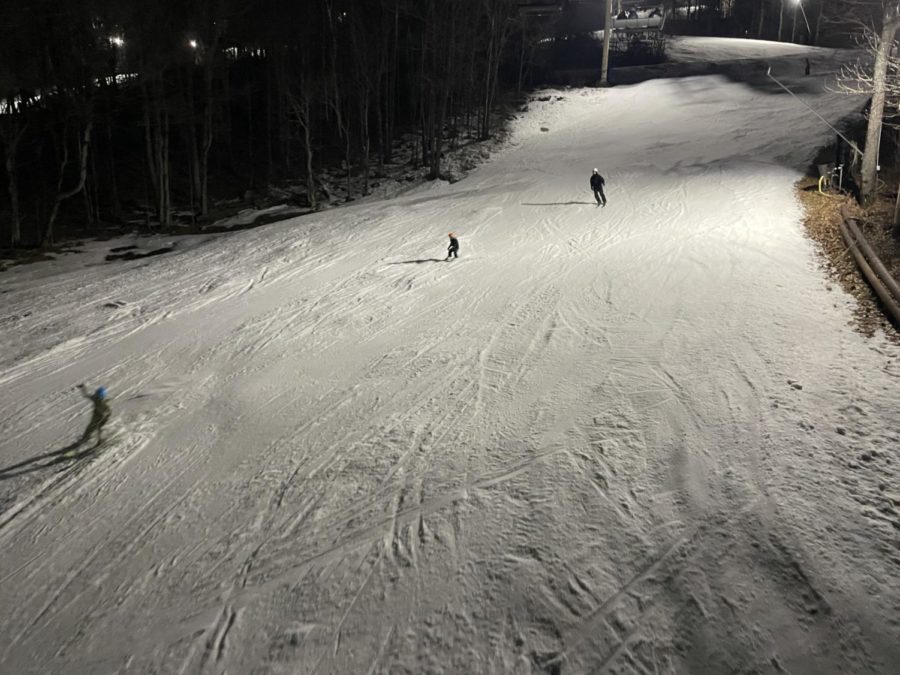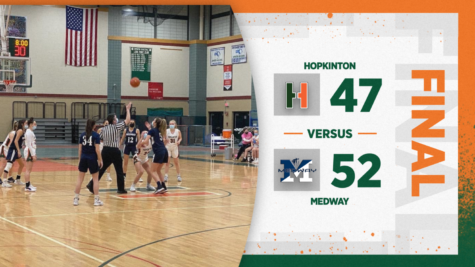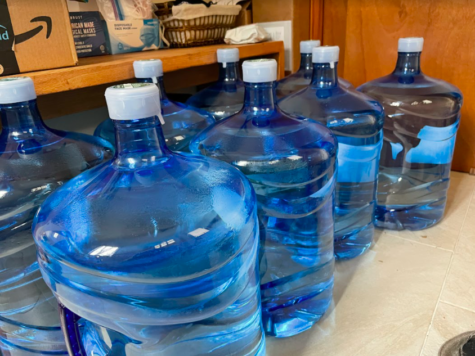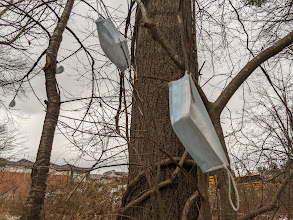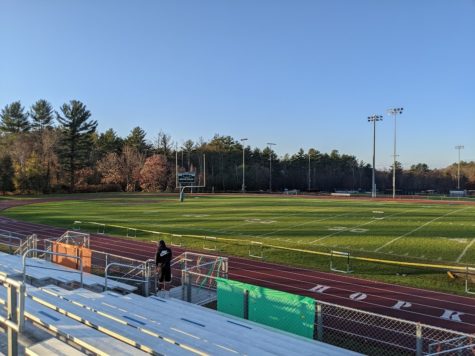Skiing on Fake Snow: Sodium Polyacrylate
Ski resorts are relying on fake snow to keep customers happy. But what are the impacts of fake snow, slush power called “Sodium Polyacryte”, on the environment, and skiers?
Family skies down Wachusett Mountain.
All around the New England region, people are wondering, when will it snow?
The state of Massachusetts, specifically the east of route I-495, has recorded no snowstorms throughout the beginning of the winter season for the first time since 1872. Experts say that this is because of a shift in the polar vortex due to climate change. Experts also reported that the shift will move the regular snowfall schedule back 3 months. However, a shift due to climate change doesn’t repel skiers from ski resorts.
Ski Areas are resorting to the use of fake snow, to keep their customers content. Over in Wachusett Mountain in Westminster, Massachusetts, the ski resort invested 5 million dollars in snow-producing equipment for its 125-acre area. Even with fake snow, people stood in lines at the lift. Waiting to have their joy, skiing, for the first time this season.
Elizabeth Herlihy, a Hopkinton Varsity Ski athlete, has been skiing at Wachusett since she was 10.
“It does feel different…But they have to keep people skiing somehow,” said Herlihy.
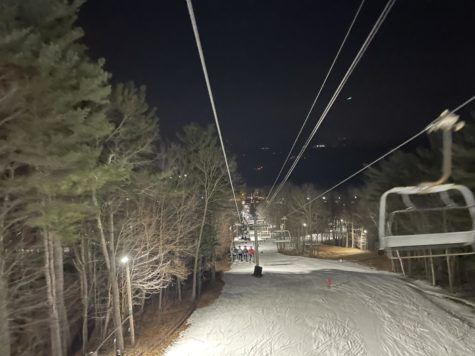
Fake snow is called Slush powder. Its chemical compound name is Sodium Polyacrylate. Sodium Polyacrylate is a non-toxic chemical that is able to store water as a slushy mixture. And in the chemistry world, Sodium Polyacrylate is called ‘instant snow’.
Jennifer Smith, a Chemistry teacher in the Science Department of Hopkinton High, reported about the science of Sodium Polyacrylate.
“Osmosis occurs, where water molecules move from a higher concentrated area to a lower concentrated area to replace the sodium that was just there… [Because of that] water gets stored in the ‘snow’, and it becomes slush powder,” said Smith.
The science of Sodium Polyacrate is very costly to replicate.
The Wachusett ski resort committee reported 20,000 dollars in electric bills a day, in order to produce Sodium Polyacrate for skiers every day. Fear is rising about the potential dangers Sodium Polyacrylate will create because of its artificial background and its harm to humans and the environment that surrounds it.
And those fear are valid To humans, there are no direct impacts, as Sodium Polyacrylate is a nontoxic chemical compound. However, to the environment, it is similar to throwing plastic directly into the woods. After a long time, Sodium Polyacrylate will turn into a gelatin mixture. If that mixture dissolves into the soil, the possibility of living hazards to nearby ecosystems may arise.
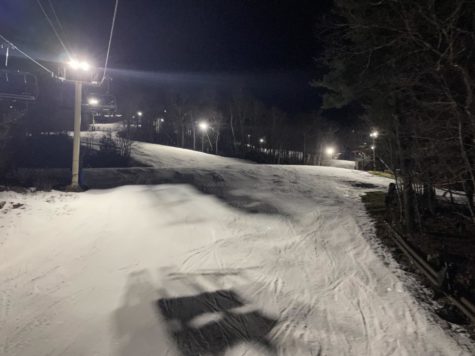
Amateur skiers may not feel any difference between Slush powder and real snow. But to competitive skiers, the difference is like golfing on grass vs. concrete; the difference is immense.
“The feel, the rapid movements, all feel really sluggish because the [fake] snow is not condensed like the normal snow,” Herlihy said.
Declan Mick, who has been skiing with his family in the Wachusett Ski report since he was 8, has seen the busiest years and snowiest years of Wachusett. Even with hundreds of skiers lining up at Wachuesetts, it lacks the population from its usual years. Recording an all-time low New Year’s week this year.
“Whether it’s because of fake snow, or not snowing around here for a while, it’s sad seeing… less than usual [people],” Mick said.
The shift in the polar vortex, according to experts, estimate the regular snowfall season to come around March of 2023. But the possibilities of snow falling in March, however, are very slim. Therefore, if snowfall continues to decrease in the Northeast, the use of fake snow and the risk of endangering ecosystems will continue. This may potentially extinct ski resorts in Massachusetts.

